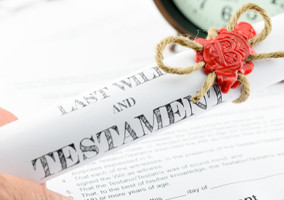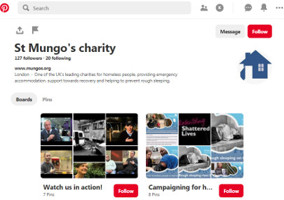It’s well-known that British Muslims are among the most generous in the UK. In fact, research by the Muslim Charities Forum found that during last year’s holy month of Ramadan alone, Muslims donated £130m to charities.
The idea of charity runs deep within Islam. Zakat, one of the five pillars of Islam, is akin to a compulsory annual tax and requires Muslims with a minimum level of wealth to pay 2.5 per cent towards good causes within one of eight specified categories.
Being caring and compassionate for humanity is a central component of the faith, but particular emphasis is placed on the ongoing nature of charitable acts, known as Sadaqah Jariyah. While feeding someone who is in need would be an act of Sadaqah (charity) and recognised as a good deed, building a well where people can regularly access water for generations would be Sadaqah Jariyah, counting as multiple good deeds for the giver.
Shari’ah law paving the way for legacies
The definition of Shari’ah is often misunderstood, but the reality is quite simple. The Shari’ah, is the Islamic idea of God’s laws and it governs aspects of everyday life in Islam and religious rituals. Its primary sources are the Qur’an (Final revelation of God revealed to the Prophet Muhammad- peace be upon him) and the Sunnah (the Prophet’s words and deeds).
But what does any of this mean for the world of legacies? Well, the rules around inheritance are also covered by the Shari’ah and the Quran prescribes who the beneficiaries of an estate are and what their share is. A person has the right to make a Wasiyyah (bequest) of up to one third of their estate, with the principle rule being that the recipient cannot be one who is already in the prescribed list of beneficiaries. This, coupled with the prominence of charitable giving within Islam, presents a great opportunity for charities to be considered worthy beneficiaries.
Islam even places a great deal of emphasis on the need to have a will, the Prophet Muhammad (peace be upon him) said: “It is the duty of a Muslim who has anything to bequeath not to let two nights pass without including it in his will.”
Will-making within the Muslim community
With all this in mind, you’d be forgiven for thinking that most Muslims probably have an up to date will including charitable legacies but if you ask around in the community you realise this isn’t the case. So, why is it that legacy giving isn’t any more prominent among Muslims than other faiths?
Firstly, awareness within the Muslim community of having a will isn’t as common as you might think and, certainly in my experience, only recently have certain mosques and institutions started to make noise and ask their congregation to remember them with a gift in their will. As for those who are conscious of the importance of having a will, a considerable amount – like the rest of the population – have let this slip to the bottom of their to do list.
Another barrier is the fact that anyone with an estate above the Nil Rate Band or Transferable Nil Rate Band for Inheritance Tax would require advice from someone with knowledge and expertise in English law and the Shari’ah. With knowledge of both being restricted to a select few firms, the cost and associated difficulties prevent people from starting the will-writing process.
Long-term potential for growing legacy giving
In a recent article, Legacy Foresight’s Meg Abdy highlights that the short-term opportunities for legacies seem limited, but the long-term picture could be far more positive. Although Muslims make up 4.8 per cent of the British population (over 3.3 million), only 2 per cent of today’s 55+ are Muslim. With 64 per cent of UK households owning their own property, this is higher than the average for home ownership within the Muslim community which stands at 43 per cent. Just under half of British Muslims live in the most deprived areas. This all significantly impacts household wealth and estate values. Despite these statistics there is real potential to build the culture of legacy giving.
Understanding the Muslim culture is key, but we also have to demonstrate why our cause is relevant. Perhaps the single largest challenge for mainstream non-Muslim charities is being a charity that Muslims can relate to. It is no secret that many charities are perceived as not being in touch with particular communities and it’s important to dismantle that perception.
At Macmillan, we’ve had some real success in reaching and engaging the Muslim community through the Baraka for Macmillan initiative; a programme that we launched last year with The Baraka Khan Foundation. The initiative encourages British Muslims to get involved in our famous World’s Biggest Coffee Morning and raises awareness of the support we offer. We are looking forward to building stronger links with the Muslim community across fundraising and services in the years ahead.
In thirty years’ time, Legacy Foresight highlights that there will be 1.5 million British Muslims over the age of 55+ in the UK. That group is likely to be in a better financial situation than the generation before and there’s no reason why they shouldn’t be instrumental in the world of legacies.
Shah Alam studied law at City, University of London and is a legacy manager for Macmillan Cancer Support. He is also currently completing a study of Advanced Islamic Studies at a seminary in London.
|
More from this series












